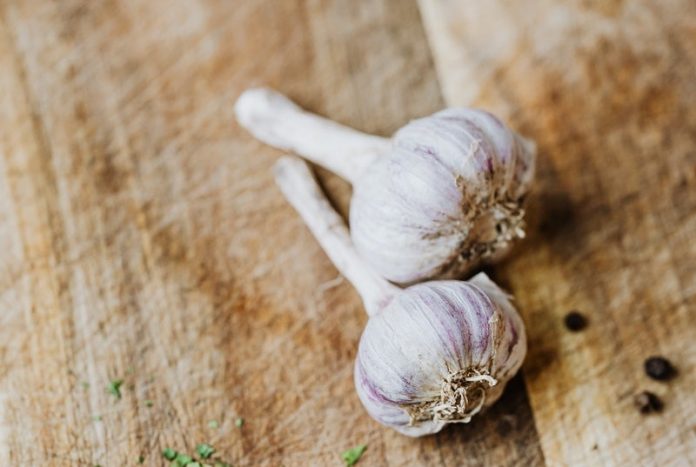
Garlic is a food of legends, supposedly capable of providing protection against everything from common colds to heart disease – not to mention vampires and werewolves.
But does it really ward off as many health ills as its reputation suggests?
“That might be a stretch,” said Kristina Petersen, an assistant professor in the department of nutritional sciences at Texas Tech University in Lubbock.
Not that garlic does anything truly evil, except maybe to your breath. To the contrary, it can give meals a flavorful kick. And it’s a common ingredient in heart-healthy diets such as the Mediterranean diet.
Some call it a vegetable because it is an edible plant. Others call it an herb, defined as any plant used as medicine, seasoning or flavoring. But it’s also a spice, which is a dried plant-derived substance used to flavor food.
A single clove of garlic has only 4 calories but, for its size, also has relatively good amounts of nutrients such as vitamin C, vitamin B6 and manganese.
It also is full of sulfur-based compounds, which give garlic its pungency and have been extensively examined for other potential benefits. One of the most-studied compounds is allicin, produced when garlic is diced or chopped.
Studies have shown garlic has anti-inflammatory properties. It’s also been shown to help lower cholesterol, blood pressure and blood sugar.
But there’s a catch.
“Typically, those effects are observed when quite high supplemental doses of garlic powder are given,” Petersen said, and the effects of putting a couple of cloves in a recipe are going to be a lot less than a supplement.
Which is not something to be taken casually.
“I wouldn’t recommend somebody take a garlic supplement,” she said. “There might be some situations where it might be indicated, but this should be done in consultation with a physician.”
Research into garlic’s cancer-fighting abilities has been summed up as inconclusive. Similarly, a 2014 review of studies found claims of its effectiveness against the common cold were based on poor-quality evidence.
But garlic can interact with some drugs, including blood thinners. People taking blood thinners are advised to avoid garlic one week before surgery or a dental procedure.
That said, in normal amounts, garlic can be great, Petersen said.
“I think there’s lots of ways to enjoy it,” she said. “I eat quite a bit of garlic. It’s great in salads, but also on vegetables. If you’re baking vegetables in the oven, it really brings out the flavor.”
She thinks it’s particularly tasty with mushrooms or in anything tomato-based. These types of combinations might be garlic’s best claim to health, Petersen said. Because if vegetables and other healthy foods are tasty, it might lead people to eat more of them.
“That’s probably the real health benefit here,” she said.
Of course, garlic breath can be a major problem, at least for people sitting downwind. The problem stems from those sulfur-based compounds.
Ohio State University researchers tested several remedies to see what might stop the stink. Chewing raw mint, raw lettuce or raw apple worked best.
There’s also a bit of science behind garlic’s reputation for warding off monsters. Some researchers suspect the disease porphyria, which can cause both a Dracula-like aversion to sunlight and unusual, perhaps werewolf-like, hair growth, might be at the root of those myths.
According to this widely repeated but not universally accepted theory, sufferers are sensitive to chemicals in garlic.
But if you’re more focused on your Saturday night meal than the Saturday matinee – go ahead and eat your garlic, Petersen said.
“I think it’s a versatile food, and it definitely has a place in healthy dietary patterns,” she said. “And while it may not have really significant health benefits per se, it has a place as part of healthy mixed diets.”
If you care about nutrition and your health, please read studies about this diet may reduce Alzheimer’s risk by changing the gut and findings of this diet may help you lose weight, balance blood sugar.
For more information about nutrition, diet and wellness, please see recent studies about this diet may cause vision loss in older people and results showing that this diet could make prostate cancer grow faster.



